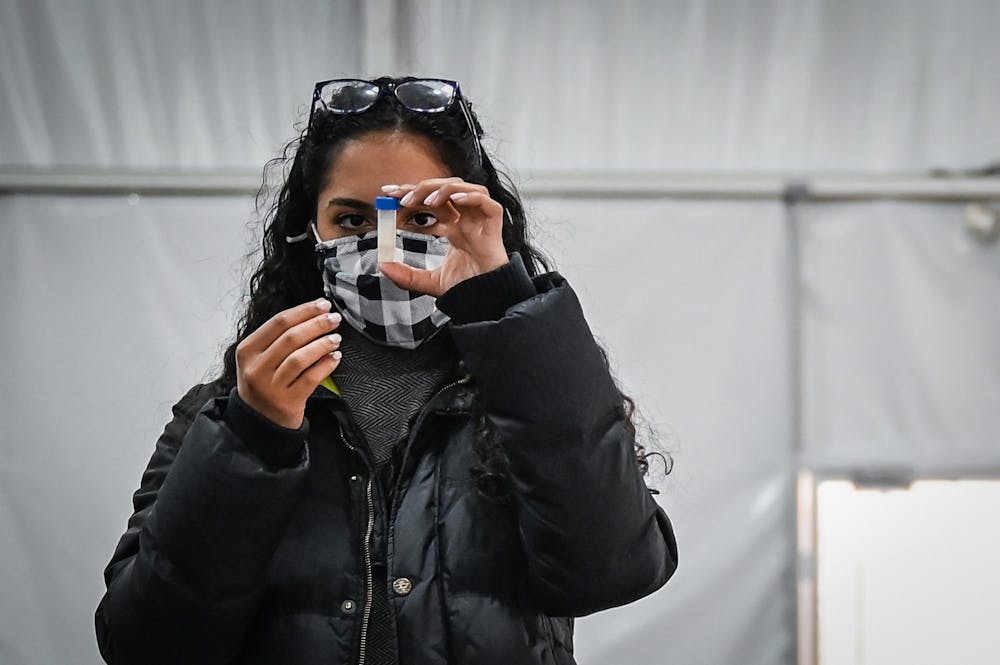The undergraduate COVID-19 case count continued to increase sharply last week, reaching a semester high and continuing to hinder the possibility of a return to fully normal campus life for the foreseeable future.
Over 80% of all positive cases came from the undergraduate community, which had 633 positive tests during the week, the highest ever undergraduate case count. The undergraduate positivity rate also continued to climb for a third consecutive week, reaching 13.05% — up from 9.73% last week. Since the week of Jan. 2, 1,761 undergraduate students — nearly 20% of the undergraduate population — has tested positive at Penn's testing sites alone.
Positive cases across the Penn community also increased for a third consecutive week. A total of 757 community members tested positive for COVID-19 during the week of Jan. 30 to Feb. 5 — up from 680 the week before.
The campus-wide COVID-19 positivity rate also rose during the week from Jan. 30 to Feb. 5, reaching 6.77% among all community members, an increase from 4.74% during the previous week.
Associate Provost and Chief Wellness Officer Benoit Dubé told The Daily Pennsylvanian on Feb. 8 that indoor social gatherings cannot resume until cases are reduced, specifically naming the undergraduate community’s continued increase in positivity rate.
“All of us can do our part to limit further transmission, by staying home if we do not feel well, even if it does not trigger a red pass,” Dubé wrote. “While we are all eager to loosen restrictions, we must only do so when it is in the best interest of the entire Penn community.”
In a Feb. 1 email to all Penn students, Dubé and Vice Provost for University Life Mamta Motwani Accapadi announced that the restrictions on indoor social gatherings and event registration remain in place, citing the increasing number of positive COVID-19 cases among undergraduate students. Dubé and Accapadi wrote they would reassess the on-campus positivity rates weekly to decide whether to permit public gatherings and event registration.
On its COVID-19 Dashboard, the University wrote that encouraging trends are expected to resume next week, despite the multi-week surge in cases.
The number of students in isolation saw an increase, breaking yet another declining trend, rising to 532 — up from 426 during the previous week. Despite the expansion in isolation housing, which was announced on Jan. 20 to include housing positive students at the Sheraton University City Hotel, on-campus isolation capacity dropped to 42.7% availability — down from 60.3% the prior week.
The increases in positivity rates comes as community members get tested less, with the number of tests last week declining to 11,175 from 14,353 the previous week — following the end of the University’s gateway testing policy, which required all students, faculty, staff, and postdoctoral students to receive a COVID-19 test through Penn upon campus arrival through the end of January.
Following the conclusion of the gateway testing program, all students are now required to resume participation in the Penn Cares screening testing program. Fully vaccinated students are required to test once every other week, and unvaccinated community members are required to test twice each week.
Community members who have tested positive for COVID-19 within the past 90 days are exempt from screening testing but are required to continue reporting symptoms and exposures through PennOpen Pass.









